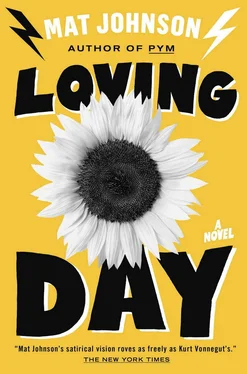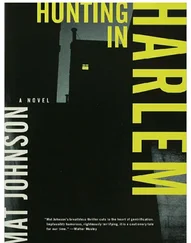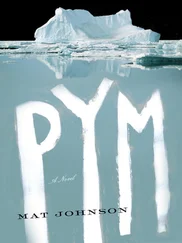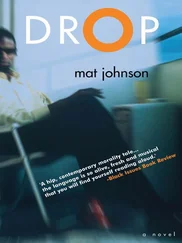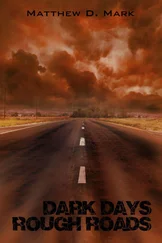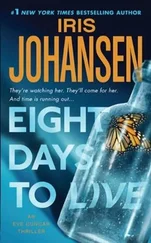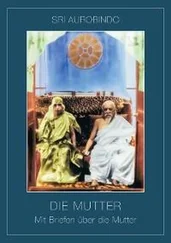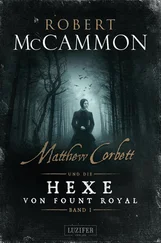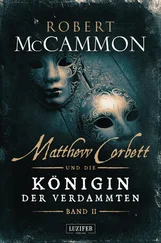“We have to get going,” I say into Tal’s ear, give a little tug on her arm meant to move both of us toward the gate.
“What? We just got here. I actually like this place. I can take modern dance. And the boring coursework’s only three hours a day, the rest is electives.”
“We have to go.”
“They offer an after-school Zumba class, Warren. We’re not going anywhere.”
“Tal, please. It’s private,” I whisper. “Look, I can’t afford it. Sorry. We have to go now.”
“Oh, so I have to go to the Umoja School?” Tal asks. Really loud. “I have to go to the black school, where I’ll never be black enough? Where I’ll never truly fit in?” Tal doesn’t believe any of this. Or even if she does, she’s instantly ingested their dogma so well she knows this is exactly how to push these people’s buttons. Tal is a habitual buttonpusher, clearly, and she’s already worked out where their keypad is located. And they hear her, because Tal is nearly screaming now.
Sunita Habersham hasn’t walked away. She looks over at me like I’m the asshole. I am the asshole, but there’s no way Sun could know that. “Finally, I find a place where I can truly be myself and—” Tal keeps going. I try to yank on her arm a litter harder, drag her out. Instead, Sun’s hand grabs my arm first.
“Your daughter hasn’t finished her campus visit. What was the point in coming up here if you’re going to leave halfway through?”
“Sorry, this was a mistake. And also sorry about the thing at the panel; I acted like an insecure jerk. But we have to go. I didn’t know it was private. My error. I can’t afford this right now. Honestly.”
“If it’s really a tuition thing, just join the center. Work for it. That’s why I came to your silly panel in the first place: we need a part-timer in art. I mean, you know, if you don’t think you’re too black for us.”
“See, work, Pops . That’s what being a dad is all about. Working for your kids.” Tal stops Sun’s sniping to contribute.
“That’s it? I teach some classes, and conceivably she can go here for free?”
“Not free, nothing’s free. But I’ll talk to Roslyn. And you’d have to take the Balance Test.” And with that she finally lets go of my daughter, and leans into me.
“Because she really needs to be here,” Sunita Habersham says, her voice hushed but firm. That smell: tea and a mouth of honey.
“Did she say something offensive?” I whisper back, but I don’t get a verbal answer. Just raised eyebrows and that wide mouth silently pantomiming, Oh yeah .
“I can take a dance test. I have an audition routine I’ve been working on,” Tal interjects.
“Not dance, honey: balance. The Balance Test. Everyone has to take it.”
I stand on one foot, make a show of it. Balancing shakily, I put my arm out then bring my finger to my nose, giving a little chuckle. Sunita Habersham doesn’t join me. I look at Tal as she turns to Sun and asks, “If he fails or otherwise makes an ass of himself, does that reduce my chance at admission?” and I laugh loudest and rustle Tal’s hair like she’s an adorable four-year-old and that shuts her up again.
—
The first question on the quiz is, Was O. J. Simpson guilty? That’s all it says.
“What the hell kind of question is that?” I ask. Neither Sunita nor my daughter responds, so I stare back at the test. There are no boxes to fill in.
“Should I just put yes or no?” I ask, and at the other end of the dark little trailer room, Sunita says, “Just put your answer,” not even looking up from whatever she’s working on. Tal is writing away, so I get back to it. I write, Probably, I don’t know, but I do know white folks were a little too excited about a black man murdering a blond white woman . I turn the page and the next question is Name the most important musician of the twentieth century and explain your justification .
“Is this some kind of pop-culture scorecard?” I ask. No response, once more. I see Sun write something again at her podium, and then I get paranoid that her notes are part of the test too, that I’m being tested on taking the test, so I keep going. I write Bob Marley , and a note about seeing his image across Africa more than paintings of White Jesus, and you see a lot of those in Africa. This proves very prescient because on the next page the question is What race was Jesus?
The thing keeps going. The next page features a picture of a black man and a white man running through the streets, the black man in front. The white guy behind him is a cop. I know this picture. It was used in an ad campaign against racism in Britain, I saw it across the tracks on a wall in Charing Cross station. It’s a mental trap. The black guy in the front turns out to be an undercover detective. There’s no way anyone can know that without being told. Next to Describe Scene I write:
They’re both cops, but that is irrelevant. A picture of anyone who isn’t wearing a suit running from a police officer would imply guilt, because businesspeople are the only criminals the law doesn’t care about. Hence the question then becomes one of class. We assume middle- and upper-class people don’t run from the law, because they defend themselves by manipulating the law. Like O. J. Simpson did .
This answer pleases me.
My daughter is turning pages before I am, but I am exasperated before her. The questions keep coming: What do you eat New Year’s Day? What card games do you know? What are your feelings about mayonnaise? What do you do with these? — and a picture of dominoes. With every question, with every answer, I become more inclined to grab Tal’s hand again and walk out, nearly overwhelmed by this impulse. I look up at Sunita Habersham, standing there in judgment. I’m used to having my blackness questioned, but never on paper, and never by an Oreo who would damn me for it. But my daughter is two desks over, just jotting away, unaware of this pretext or just uncaring.
By the final question, Name your black friends [minimum three] , I answer, Nat Turner, Warren G. Harding, and What T. Fuck? and then get up to hand it in. All I get is a curt thank-you. Sunita won’t even look up at me from her podium, and when I peek I see I was right; she’s written notes on a page with my name on it. Next to her notes though, Sunita’s reading a comic book. Sunita Habersham is reading Mind MGMT , which is a really good comic book, the sort you have to make the lifestyle choice of visiting specialty comic-book enclaves to find. The sound I make, the puff of air, is less a sigh than the reaction to a gut punch. I have no defenses against this combination of shared interest and physical attraction. I take –7 vulnerability points on all attractive female geek attacks.
Gone is my racial righteousness and in its vacuum I am so drawn to Sunita Habersham that I experience it through the lens of terror: that I will fail to connect with her on even the most platonic of levels, that this is a pivotal life challenge to which I will fail to rise. That the intuition I felt on the first day, that she can save me, was a premonition. When Sunita finally looks up, holding my gaze, I choose to believe this is a signal of mutual attraction.
“ Mind MGMT . Do you like comic books?” I lead with.
“We met at a comic convention. What, did you think I was just there for you?” She shrugs, goes back to reading.
Mutual attraction is not equal attraction. No cartoon bluebirds sing around our heads or link our hands with ribbon, but I believe we silently share the knowledge that we are grown-ups who enjoy the same obscure hobby, are of close enough age, are of similar heights and fitness proportion, and that we both have faces several others have found pleasant. Also: I’m a big man. And Sun’s a big woman. Tall, full, real. We share a sturdy similarity. Surely she must know we are both Kapha Doshas, in the ancient Hindu Ayurvedic tradition. And I can lift her. And she knows I can lift her — oh yeah, she knows — and not every man can do that. But I can because I match her. I want to lift her. I want to carry her and let whatever thing she’s figured out about how to be black, white and not, carry through the strain in my arms. She knows. I know she does. I can feel it next to her. I can feel good next to her. I look down, as fast as I can past her breasts to her hands on the podium. A hell of a lot of bracelets clack above them but all that metal and not a thing on the only finger that means something.
Читать дальше
